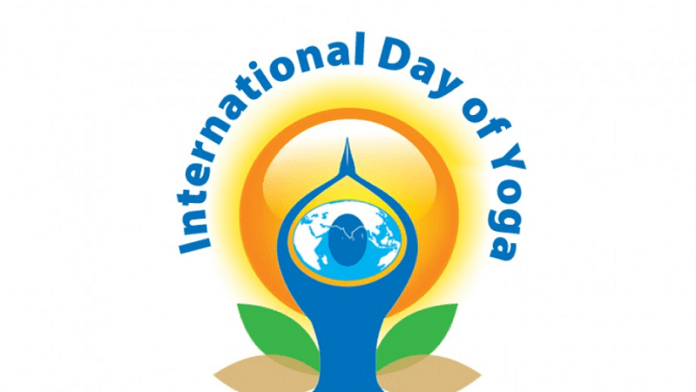The International Day of Yoga, celebrated each year on June 21, is an opportunity to raise awareness on the essence of yoga, which is the importance of balance in our lives. The balance attained through practice of yoga, is not confined to reaching a balance between the various organs within the body, and between the body and mind, but also by reaching a balance in our relationship with the world.
The practice of yoga helps cultivate the values of discipline, mindfulness, moderation, and perseverance. When applied to communities and societies, yoga offers a path for promoting sustainable lifestyle in harmony with planet Earth. As such, yoga can be considered an important tool in humanity’s collective quest for sustainable living and development, as enshrined in the 17 United Nations Sustainable Development Goals (SDG) that the world aims to achieve by 2030. It is in keeping with the holistic benefits of yoga, for individuals, for communities
and for humanity that the United Nations declared the theme for this year’s International Day of Yoga celebrations as ’Yoga for Humanity’.
The importance of values promoted by yoga, such as discipline, mindfulness and perseverance for individuals and communities were brought to the fore most recently during the COVID-19 global pandemic. The COVID-19 pandemic led to a human tragedy of unprecedented scale, both in terms of the cost to livelihoods and in loss of life to millions of people around the world. Besides its immediate impact on physical health, the COVID-19 pandemic also exacerbated psychological suffering and mental health problems, including depression and anxiety among many people. Lengthy lockdowns and curfews introduced as part of precautionary measures during the pandemic, meant that most people were confined to their homes for extended periods leading to social
isolation and depression.
Interacting with the same people throughout the day, within the relatively narrow confines of one’s home often led to frayed nerves and outbursts of temper between family members. Many people who turned to yoga during this period say that a regular regimen of yoga practice helped them overcome their negative
energy and to stay healthy and rejuvenated.
They also add that yoga enabled them to cope better with the pressures from living in a restrictive environment, allowing them to channel their energy to positive ventures. In addition, it assisted them to find a balance in their lifestyle and in their relationships with others.
Yoga is an ancient physical, mental and spiritual practice that originated in India. The word ‘yoga’ is derived from the Sanskrit language and means to ‘join’ or ‘unite’, and symbolizes the union of body and consciousness. Today it is practiced in various forms around the world and continues to grow in popularity.
Recognizing its universal appeal, and the many benefits to be derived from the practice of yoga, the United Nations proclaimed on 11 December 2014 that 21 June of each year would be celebrated world over as the International Day of Yoga. The draft resolution establishing the International Day of Yoga was proposed by India at the UN General Assembly, and endorsed by a record 175 member states.
The proposal was first introduced by Prime Minister Narendra Modi in his address during the opening of the 69th session of the General Assembly in 2014, in which he said: “Yoga is an invaluable gift from our ancient tradition. Yoga embodies unity of mind and body, thought and action … a holistic approach that is valuable to our health and our well-being. Yoga is not just about exercise; it is a way to discover the sense of oneness within yourself, the world, and with nature.”
UN Resolution 69/131, passed on 11December 2014 notes “the importance of individuals and populations making healthier choices and following lifestyle patterns that foster good health.” It points out that “global health is a long-term development objective that requires closer international cooperation through the exchange of best practices aimed at building better individual lifestyles devoid of excesses of all kinds.”
The resolution adds that “recognizing that yoga provides a holistic approach to health and well-being, and recognizing also that wider dissemination of information about the benefits of practicing yoga would be beneficial for the health of the world population, decides to proclaim 21 June the International Day of Yoga.”
In this regard, the World Health Organization has also urged its member states to help their citizens reduce physical inactivity, which is among the top ten leading causes of death worldwide, and a key risk factor for non-communicable diseases, such as cardiovascular diseases, cancer and diabetes.
The UN resolution invited all Member and observer States, the organizations of the United Nations system and other international and regional organizations, a s well as civil society, including non-governmental organizations and individuals, to observe the International Day of Yoga, in an appropriate manner and in accordance with national priorities, in order to raise awareness of the benefits of practicing yoga.

















